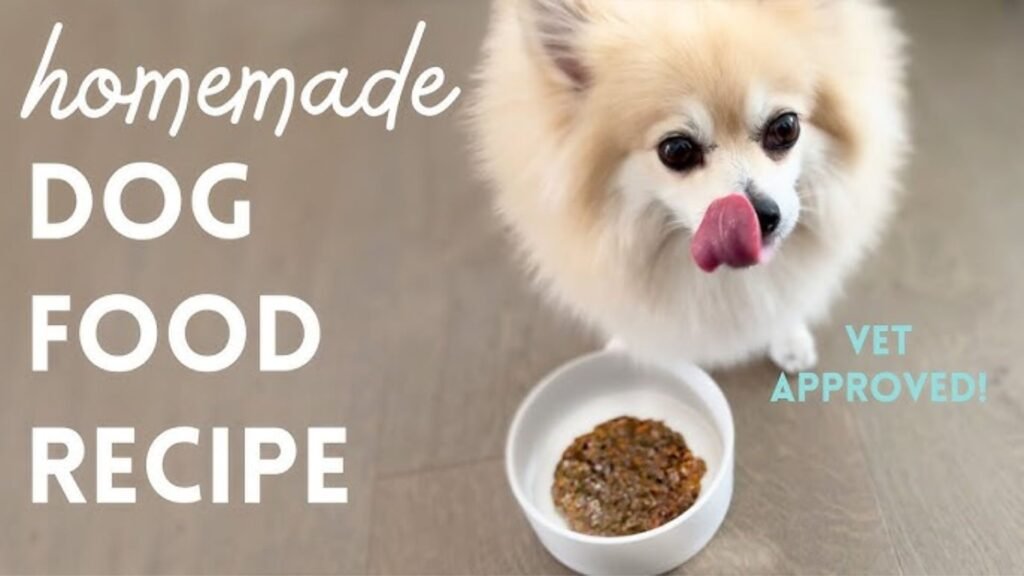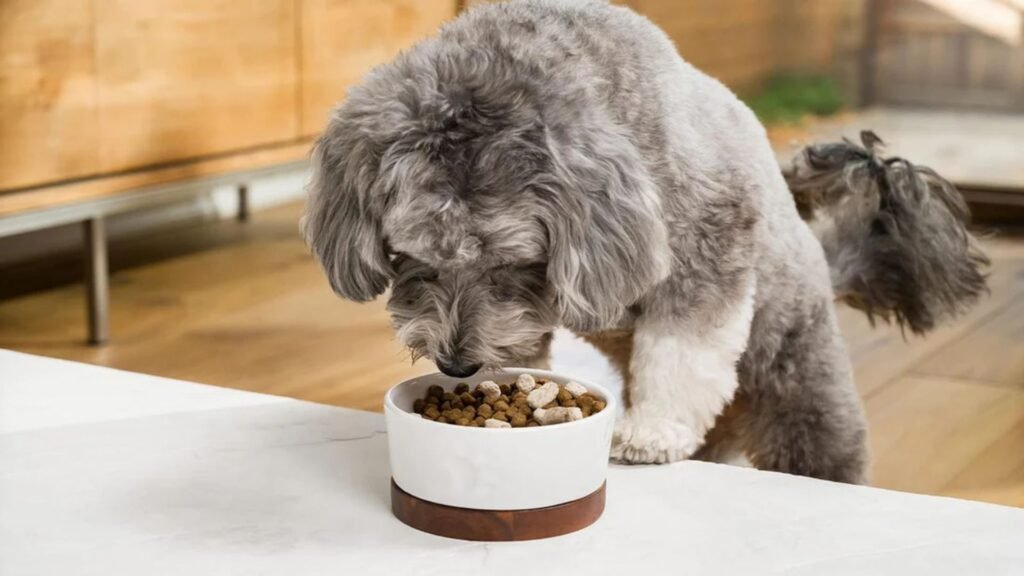Introduction: Why More Pet Owners Are Choosing Homemade Dog Meals
As the world becomes more health-conscious, pet owners are following suit—not just for themselves, but also for their furry companions. The rise in demand for homemade dog meals is not just a passing trend; it’s a response to the growing concern over preservatives, additives, and unknown ingredients found in commercial dog foods.
Making homemade dog meals gives you full control over what goes into your dog’s bowl. You can avoid fillers, control calories, and offer variety—all while tailoring meals to your pup’s needs. Whether you’re dealing with allergies, weight issues, or a picky eater, homemade dog meals provide the flexibility and nutrition many dogs need to thrive.
Health Benefits of Homemade Dog Meals
Switching to homemade dog meals can significantly impact your dog’s health in numerous ways. Here’s how:
- Improved Digestion: Whole foods are easier on the stomach.
- Better Skin and Coat: Natural fats and oils support coat health.
- Weight Control: You manage the portion sizes and calorie content.
- Allergy Management: Eliminate ingredients that trigger reactions.
- Increased Energy: Nutrient-rich food provides sustainable energy.
Many owners report visible improvements in their dog’s coat, energy level, and even behavior after switching to homemade dog meals. These improvements are often attributed to better nutrient absorption and the elimination of synthetic ingredients.
What Makes Homemade Dog Meals Nutritious?
Crafting homemade dog meals isn’t just about cooking meat and veggies. Dogs have very specific nutritional needs that must be met for them to stay healthy.
Essential Nutrients for Dogs
- Proteins – Vital for muscle repair and growth. Use lean meats like turkey, chicken, and beef.
- Carbohydrates – Source of energy. Include brown rice, oats, and sweet potatoes.
- Fats – Promote healthy skin and brain function. Use fish oil or flaxseed oil.
- Vitamins and Minerals – Found in vegetables like carrots, spinach, and pumpkin.
- Water – Hydration is key, especially if you’re feeding dry or cooked meals.
A balanced rotation of these components ensures your homemade dog meals cover all the necessary nutritional bases. Remember, not all human foods are dog-safe, so it’s essential to research or consult a vet when unsure.
Foods to Avoid in Homemade Dog Meals
While there’s a long list of foods that are beneficial in homemade dog meals, there are also several that should be strictly avoided:
- Onions and Garlic – Toxic to dogs, can cause organ damage.
- Grapes and Raisins – Can lead to kidney failure.
- Chocolate – Contains theobromine, which is toxic to dogs.
- Avocados – Contain persin, which is harmful in large amounts.
- Xylitol – A sugar substitute found in peanut butter and other products, extremely toxic.
Avoiding these ingredients will help you keep your homemade dog meals safe and beneficial.
How to Start Making Homemade Dog Meals

Starting with homemade dog meals doesn’t have to be intimidating. Begin with a few simple recipes and build confidence over time. Follow these basic steps:
- Choose a Protein Base – Chicken, turkey, or beef are excellent starting points.
- Add Carbohydrates – Cooked oats, brown rice, or quinoa.
- Include Vegetables – Carrots, peas, spinach, or pumpkin.
- Supplement if Needed – Add fish oil or a canine multivitamin.
Cooking in bulk and freezing portions will save you time and effort. Over time, you can rotate ingredients to provide variety in your homemade dog meals.
Top Homemade Dog Meal Ideas
Here are several go-to meals that form the backbone of many successful homemade dog meals plans:
1. Chicken & Sweet Potato Mix
- Chicken breast, cooked and shredded
- Steamed sweet potatoes
- Green beans or spinach
- A dash of fish oil
2. Beef & Brown Rice Bowl
- Lean ground beef
- Cooked brown rice
- Chopped carrots and zucchini
- Flaxseed oil for omega-3 support
3. Salmon & Quinoa Blend
- Cooked, boneless salmon
- Cooked quinoa
- Chopped kale
- Small spoon of plain yogurt for probiotics
These recipes are flexible. The keyword here is “balance”, and every variation should align with that core principle when crafting homemade dog meals.
Portioning and Meal Frequency
One common question pet owners ask when starting homemade dog meals is: How much should I feed my dog?
Factors That Affect Portion Size:
- Dog’s age
- Activity level
- Breed
- Weight goals
Generally, adult dogs eat 2-3% of their body weight in food per day, split into two meals. Puppies may require up to 5%. Adjust as needed based on your vet’s advice.
How to Store Homemade Dog Meals Safely

Because homemade dog meals lack preservatives, proper storage is vital:
- Refrigeration: Keep cooked meals in sealed containers, good for up to 3-4 days.
- Freezing: Batch cook and freeze portions for up to 2 months.
- Labeling: Include preparation dates to track freshness.
Always bring frozen meals to room temperature before serving. Avoid serving food that’s too hot or too cold.
Using Supplements in Homemade Dog Meals
Even with the best intentions, some homemade dog meals may lack key nutrients. Supplements can help:
- Calcium: If you’re not including bones or dairy, calcium is essential.
- Fish Oil: Great for joints, skin, and brain health.
- Multivitamins: Ensure a full spectrum of essential nutrients.
- Probiotics: Support gut health and digestion.
Only use vet-recommended brands. Over-supplementation can be harmful.
Transitioning to Dog Meals
Don’t switch your dog’s diet all at once. Gradual change helps avoid digestive upset:
- Start by replacing 25% of your dog’s meal with the homemade version.
- Increase to 50% over a few days.
- Move to 75% after one week.
- Fully transition within 10–14 days.
Watch for signs of distress like vomiting, loose stools, or lethargy. If symptoms persist, consult your vet.
Signs Homemade Meals Are Working
As your dog adjusts to their new diet, look for these positive indicators:
- Shiny Coat
- Increased Energy
- Healthy Weight
- Improved Digestion
- Clear Eyes
- Happy Behavior
If you’re consistently using quality ingredients and rotating meals properly, your dog will reap the benefits of homemade dog meals within weeks.
Cost Comparison: Homemade Meals vs. Commercial Food
You might assume that homemade dog meals are more expensive than store-bought food, but that’s not always true.
Homemade Dog Meals:
- Initial Cost: Higher due to ingredient variety.
- Long-Term Cost: Balanced with bulk cooking and fewer vet bills.
Commercial Food:
- Convenient but often full of fillers.
- Cheaper per meal, but may lead to costly health issues later.
In many cases, a smart strategy with dog meals can cost about the same or even less over time—especially when health improvements reduce medical expenses.
Common Myths About Homemade Dog Meals

Myth 1: Dogs Need Only Meat
Fact: They need a balanced mix of protein, fat, fiber, and carbs.
Myth 2: Homemade Diets Are Dangerous
Fact: When properly balanced, they’re incredibly healthy.
Myth 3: It’s Too Complicated
Fact: Start simple and build confidence over time.
Busting these myths helps pet owners embrace the benefits of homemade dog meals with confidence.
FAQs
Q1: Can puppies eat homemade meals?
A: Yes, but they have higher nutrient needs. Consult a vet for puppy-specific recipes.
Q2: What meat is best for homemade dog meals?
A: Lean meats like chicken, turkey, beef, and fish are ideal.
Q3: Can I use raw food in homemade dog meals?
A: You can, but it’s best to consult a vet due to potential bacterial risks.
Q4: How do I keep meals balanced?
A: Rotate ingredients, use supplements, and follow trusted recipes.
Final Thoughts: Your Pup Deserves the Best
Feeding your furry friend homemade dog meals is one of the most impactful decisions you can make for their long-term health. You have full control over quality, nutrition, and flavor—all while strengthening your bond through the act of care and preparation.
Start simple. Build a meal rotation that includes a variety of proteins, vegetables, and healthy fats. Track your dog’s health, and stay in contact with your vet. With time and consistency, you’ll not only become confident in preparing homemade dog meals—you’ll also witness the amazing transformation in your pup’s health, energy, and happiness.
